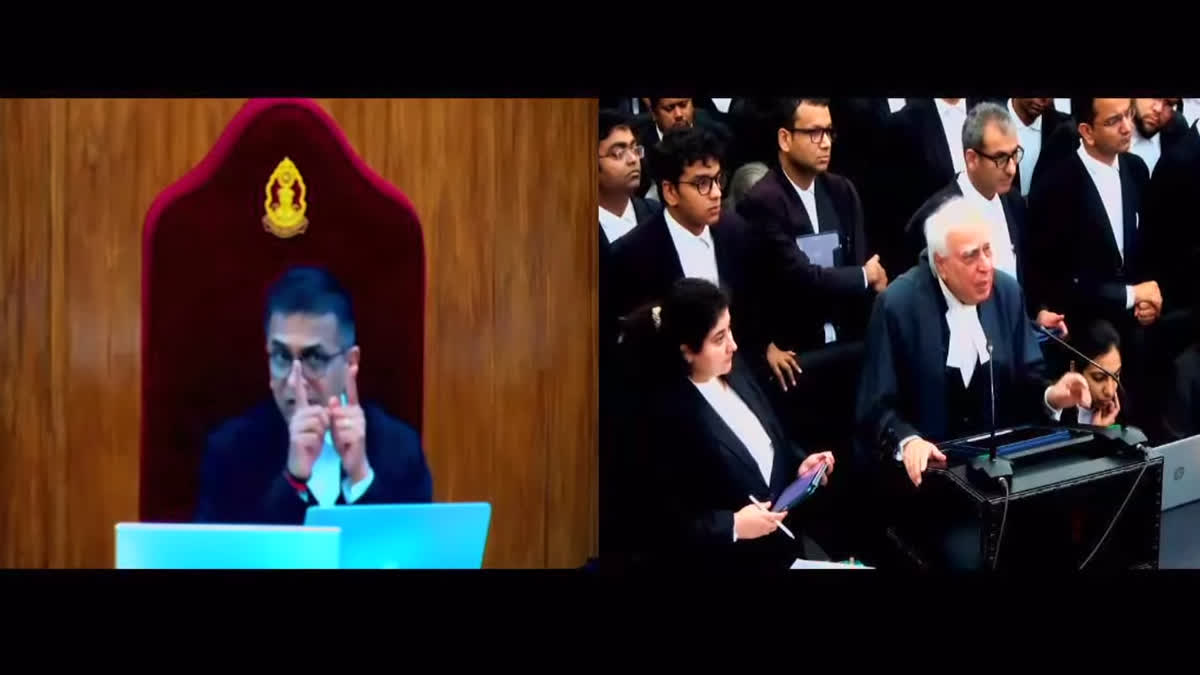New Delhi:The Supreme Court Tuesday said in a constitutional democracy, seeking the opinion of people has to be through established institutions and "within a Constitution like ours, there is no question of a referendum".
A five-judge constitution bench headed by Chief Justice of India D Y Chandrachud and comprising justices S K Kaul, Sanjiv Khanna, B R Gavai, and Surya Kant, is hearing a batch of petitions challenging the abrogation of the Article 370, which bestowed special status on the erstwhile state of Jammu and Kashmir.
Arguing on the third day of the hearing, senior advocate Kapil Sibal, representing Mohd. Akbar Lone, contended that the abrogation was a political decision and that the opinion of the J&K people should have been sought. Sibal pointed out the example of Brexit where a referendum was held and there was no constitutional provision seeking a referendum. He said to sever a relationship, one must seek the opinion of the people because people are central to the decision.
Also read-Is Article 370 being compared to Basic Structure, CJI asks Sibal
The Chief Justice said in a constitutional democracy seeking opinion of the people has to be through established institutions and as long as democracy exists, any recourse of will of people has to be expressed by established institutions. Justice Chandrachud said “you cannot envisage a situation like Brexit….That is a political decision which was taken by the then government. But within a Constitution like ours, there is no question of a referendum.’
Sibal said constituent assembly proceedings are essential in determining whether Article 370 was intended to be a temporary measure. Sibal insisted that abrogation is a political decision, not a constitutional decision. The Chief Justice queried Sibal, but then the question is whether the constitution does or does not entrust that authority?
